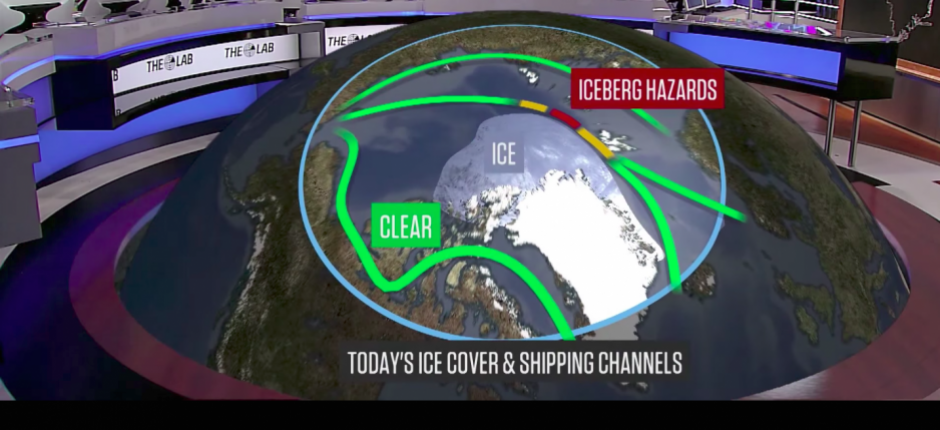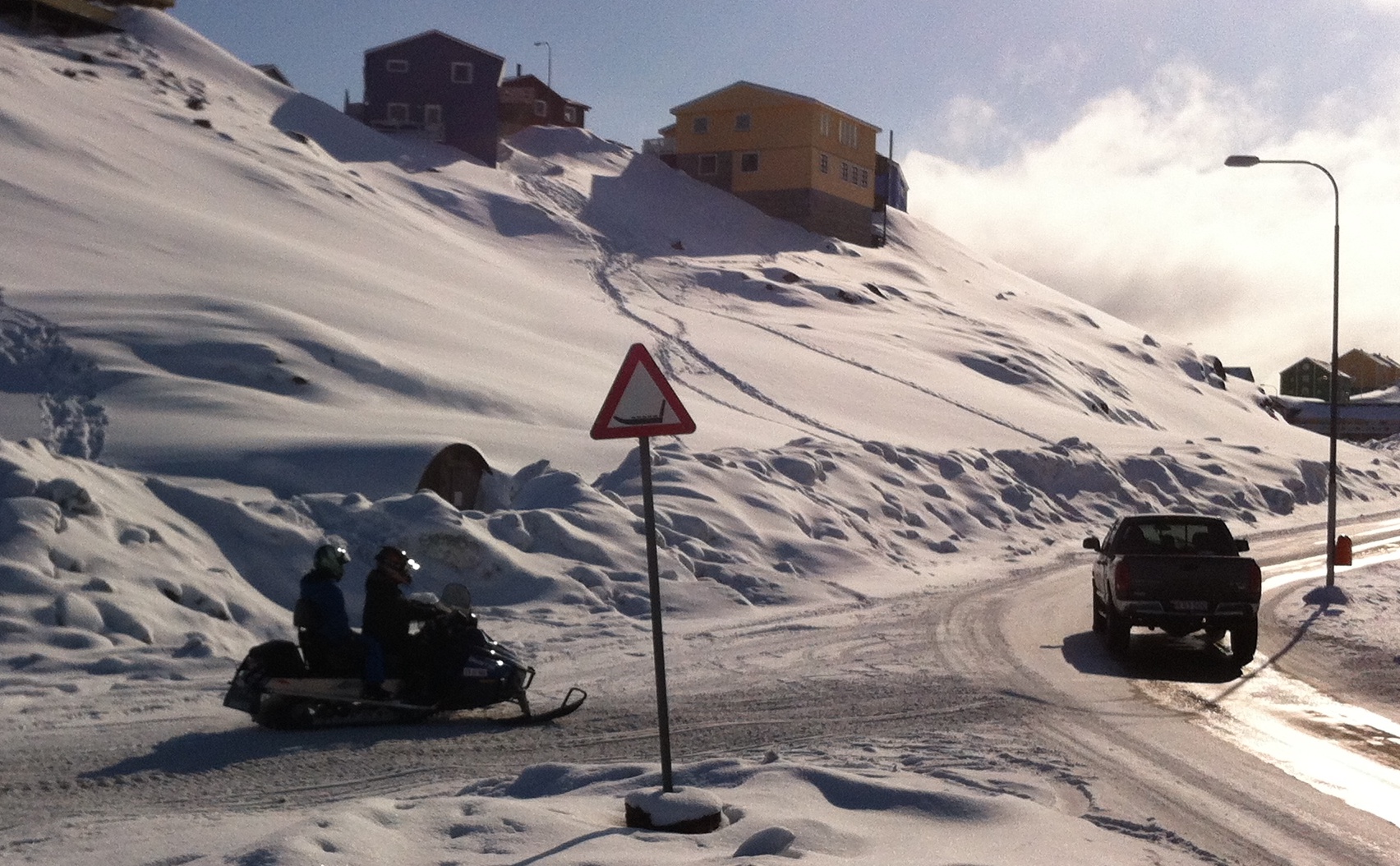The Week Ahead: Tomorrow’s forecasts today
Meteorologists gather in Finland to discuss ways to improve weather forecasting in a region where weather is getting harder to predict

Explaining why the climate is increasingly out of whack and what it means for the planet in the long-term is the province of climate scientists. Explaining what it means for people today, tomorrow and into next week, on the other hand, is the meteorologist’s job.
How can the Arctic’s meteorologists improve the accuracy of their predictions at a time when the level of human activity in the region is on the rise? One way is to get better information about current conditions. Another is to develop a better understanding of how weather patterns have changed over time.
Both, according to Finland, which broke new ground by selecting meteorological cooperation as one of its Arctic Council priority areas, require that countries active in the region pool as much information as possible.
This week, it invites meteorologists to the town of Levi for an Arctic Meteorology Week to discuss how progress in this area can be made. Getting it right, they say, benefits public safety, shipping and air traffic. Climatology, too, also stands to gain, since the more information about the weather there is, and the more accurate it is, the better their models can be.
Everyone talks about the weather. The Finns, at least, are talking about ways do something about it.
When and where
March 19-23; Levi, Finland
For more information
Engaging Meteorology and Arctic cooperation
Exceptionally large amount of winter snow in Northern Hemisphere this year
Further reading
A project to improve Arctic weather forecasts launches
Senior Arctic Officials meeting
Finland this week hosts its second meeting of senior Arctic officials since assuming the chairmanship of the Arctic Council in May.
In addition to the senior Arctic officials — the diplomats and high-level civil servants who represent each of the eight members of the Arctic Council — representatives from the six indigenous organizations with permanent representation on the council, as well as its 30 observers will be on hand during the two-day gathering.
Such meetings take place behind closed doors, but the public agenda mentions updates from the council’s six working groups, as well as discussions about connectivity and meteorological cooperation among Arctic countries, both of which are Finnish priorities during its two-year chairmanship. (The other two, environmental protection and education, were taken up during the first meeting.)
Levi will also be the site of a regular meeting of the sustainable-development working group during the first part of the week and a meteorology summit, being organised by the WMO, the UN weather agency, runs the whole week (see above.)
With so much on the docket, those planning on being in Levi, the home of the country’s biggest ski resort, expect a busy week. All work. No play.
When and where
March 22-23; Levi, Finland
For more information
Finland’s Arctic Council chairmanship
Further reading
The Week Ahead: The Arctic Council meets in Oulu while Greenland’s leader calls on China
Avannaata Qimussersua

Snowmobiles have overtaken transportation in Greenland to the degree that, today, few rely on sled dogs for anything more than non-essential transport. That has not altered their status as work animals, pulling sleds for hunters, military patrols or, increasingly, tourists.
Racing them is a newish idea, but the series of competitions that this week will culminate in Avannaata Qimussersua, the national mushing championship, is taken seriously by competitors and spectators alike. Successful mushers are held up as local heroes, figuratively and literally: Winners of races are raised aloft on their sleds by jubilant crowds.
Age is no hindrance either. Junior races are organised, and one of the entrants in this year’s final is 72. A three-time champion, he won most recently in 2009.
Animal rights groups think more about the dogs. The practice of abandoning dogs that fall off the pace during the 25-mile (40-kilometer) race is particularly offensive. Owners point out that if the dogs are too exhausted to return to the start area on their own, race staff collect them and return them.
Owners have bigger concerns than what outside groups think anyway. Distemper and other dog diseases remain hard to eliminate. Outbreaks are common and deadly. Warmer winters shorten the period of time in which their dogs can work, too. These pressures, combined with urbanization, have reduced the number of sled dogs by half, to 15,000, since the 1990s. Add sled-dog to the list of disrupted professions.
When and where
March 24; Ilulissat, Greenland
For more information
Qimmeq – the Greenland sled dog
Further reading
Greenland authorities in race to vaccinate sled dogs ahead of major competition
Arctic Winter Games
The teams from Nunavik (left) and Northwest Territories take part in the pole-push event during the 2016 Arctic Winter Games in Nuuk. (Kevin McGwin)
The 2018 Arctic Winter Games mark the first time in a decade that the event returns to the Northwest Territories, where it was first held, in 1970. Since then, it has grown in size, as well as in scope. The first games involved 500 athletes from three regions: the Northwest Territories, Yukon and Alaska.
By 2016, six more regions (Greenland, Northern Alberta, Nunavik, Nunavut, Sápmi and the Yamalo-Nenets Autonomous Okrug) were sending not just athletes, but also cultural performers. More than 2,000 young people will take part this year.
In addition to a sports and culture event, organizers also see the games as an educational experience, and a lesson in capacity building, giving host cities real-world experience in professional skills, like logistics, languages and hospitality. For Nuuk, this meant planning for more than two years to marshall residents to help put on an event that, in terms of population, was as large as the Rio Olympics that same year.
The Arctic Winter Games are still meant to be fun, but they are not just games any more.
When and where
March 18-24; Hay River and Fort Smith, Northwest Territories
For more information
South Slave 2018
Further reading
Rebranding Greenland
Other events this week
Alaska Language Summit
The Alaska Division of Elections hosts its first language summit. The goal is for participants to learn about the division’s efforts to increase language assistance along with Alaska Native languages preservation and revitalization efforts.
When and where
March 19-20; Anchorage, Alaska
For more information
Alaska Division of Elections
Further reading
Shoppers across the Alaska and Canadian Arctic can now find some items in local indigenous languages
Sustainable Development Working Group meeting
The Arctic Council’s working group dealing with the advancement of sustainable development in the Arctic meets for its second regular meeting of the Finnish Chairmanship
When and where
March 19-20; Levi, Finland
For more information
Sustainable Development Working Group
Further reading
The Arctic and Sustainable Development Goals
All aboard to the Arctic!
Aalto University and the Northern Dimension Institute hold a half-day seminar that brings together policy makers, businesspeople and academics to discuss current issues in Arctic maritime shipping policy and operations.
When and where
March 20; Brussels
For more information
Seminar description and program
Further reading
The Polar Code heralds a new era of safer navigation in Arctic waters
Arctic Safety
Norway’s Petroleum Safety Authority holds a meeting of industry experts to discuss risk-management and responsible oil drilling in the Arctic.
When and where
March 21-22; Stavanger, Norway
For more information
Petroleum Safety Authority
Conference description and program (in Norwegian)
Further reading
The future of Norway’s oil industry lies in the Barents Sea—but it’s far from certain
Barents Euro-Arctic Cooperation Joint Working Group on Health and Social Issues meeting
The Joint Working Group on Health and Related Social Issues brings together governments, regions, organizations and experts in health and related social issues with the aim of improving public health and social well-being of the people in the Barents Region.
When and where
March 22; Kirkenes, Norway
For more information
Meeting agenda
Joint Working on Group on Health and Social Issues
Further reading
Sámi town Utsjoki launches project to prevent suicides
2B Sustainable. Climate and Energy Forum
The Arkhangelsk office of the Norwegian Barents Secretariat, in cooperation with regional environmental organizations and Russia’s Northern (Arctic) Federal University, hosts a forum devoted to climate-change issues and renewable energy.
When and where
March 23-24; Arkhangelsk, Russia
For more information
Norwegian Barents Secretariat
Conference program (in Russian)
Further reading
Russia’s big Arctic LNG project comes with a cost to the environment
Earth Hour
People around the world are asked to turn off electric lights for an hour in what event organizer WWF says is the world’s largest grassroots movement for the environment.
When and where
March 24, 8:30-9:30pm local time; worldwide
For more information
Earth Hour
Further reading
How a regional clean development mechanism for the Arctic could more effectively combat climate change
The Week Ahead is a preview of some of the events related to the region that will be in the news in the coming week. If you have a topic you think ought to be profiled in a coming week, please email [email protected].